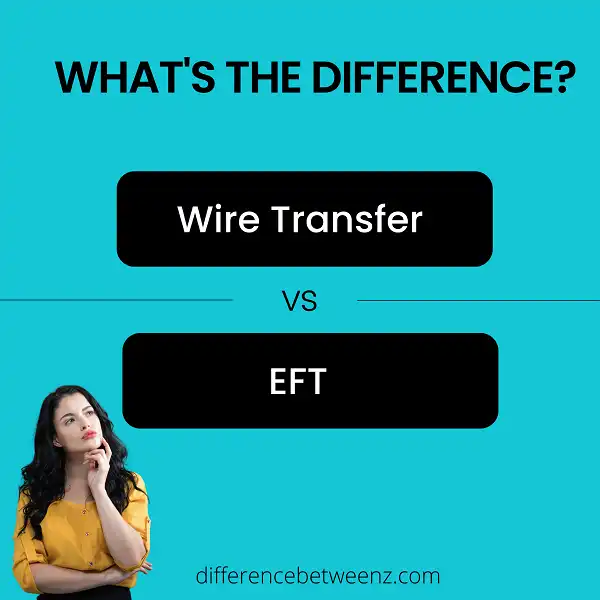When transferring money from one account to another, there are two primary ways to do this: wire transfer and electronic funds transfer (EFT). Both have their own unique benefits, but what is the difference between wire transfer and EFT? Here’s a look at the key differences between these two methods of money transfer.
What is Wire Transfer?
Wire transfer is the electronic movement of money from one bank account to another. Wire transfers can be made online, by phone, or in person. Wire transfers are typically considered more secure than other methods of transferring funds, such as personal checks or ACH transfers. Wire transfers usually come with a fee, which can vary depending on the amount being transferred and the banks involved. Wire transfer may also refer to the wiring of money for the purchase of goods or services, such as when you wire a deposit to a hotel ahead of your stay.
Wiring instructions are generally provided by the payee and include the recipient’s name, account number, and routing number. A wire transfer can also refer to sending money via Western Union or MoneyGram. With these companies, you can send money online or in person, and the recipient can pick up the funds at a local agent location. These methods are often used for sending smaller amounts of money quickly. Wire transfers are a fast and convenient way to send money, but it’s important to be aware of the fees involved and have the recipient’s banking information before starting the process.
What is EFT?
EFT is an electronic funds transfer system that allows for the transfer of funds between two financial institutions. EFTs can be used to pay bills, transfer money between accounts, or make purchases. EFT transactions are typically processed quickly and are considered to be more secure than traditional methods of payments such as checks or money orders. Additionally, EFTs can help to reduce the risk of fraud and identity theft. For these reasons, EFTs are increasingly being used by businesses and individuals alike.
Difference between Wire Transfer and EFT
Wire transfers and electronic funds transfers (EFTs) are both ways to send money from one bank account to another. Wire transfers are processed almost immediately, while EFTs can take a few days to process. Wire transfers are also generally more expensive than EFTs. Wire transfers are typically used for large sums of money, while EFTs are more commonly used for smaller amounts. Both wire transfers and EFTs are secure methods of payment, but wire transfers offer an additional level of security.
When you send a wire transfer, you provide your bank with the recipient’s account information and they initiate the transfer on your behalf. With an EFT, you provide the same information to your bank, but the transfer is initiated by the recipient’s bank. Wire transfers are therefore considered to be more secure since there is less opportunity for fraud. Wire transfers are also irreversible, while EFTs can usually be reversed if there is an error. For these reasons, wire transfers are typically used for more sensitive transactions.
Conclusion
Wire transfers and EFTs are both popular methods of transferring money electronically. They have different features, so it’s important to understand the difference before you choose which one is best for your needs. We hope this article has helped clear up any questions you may have about wire transfers and EFTs.


